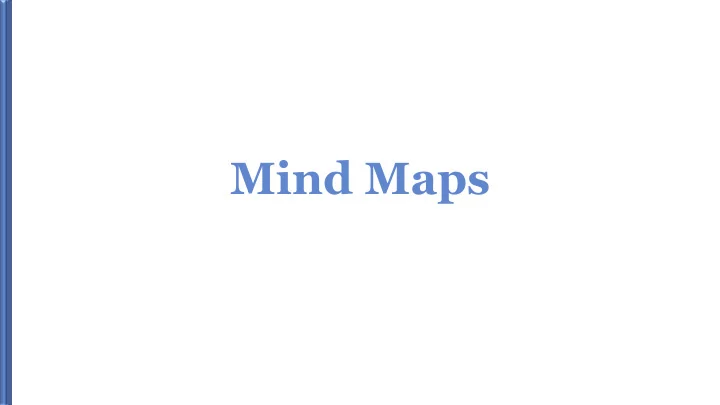

Mind Maps
Interpersonal Fundamentals of Management • Figurehead Decisional • Leader • Entrepreneur • Liaison • Disturbance Informational handler • Monitor Resource allocator • • Disseminator • negotiator • Spokesperson Management Process of achieving An organisation Managerial Roles organisational goals efficiently and • Social arrangement Informational • effectively through • Collective goals • Interpersonal 1. Planning Controlled • • Decisional 2. Organising performance 3. Leading 4. Controlling Managerial Skills • Interpersonal Levels of Conceptual • Management • Technical Controlled performance: Controlled performance: • Top level Efficiency and Efficiency and Middle level • Effectiveness Effectiveness • First-line managers
Organisational Planning and Goal Setting Industry analysis: Porter’s five forces Growth strategies: Ansoff’s Matrix 1. Bargaining power of buyers 1. Product development Organisational Audit: 2. Bargaining power of suppliers 2. Market penetration SWOT analysis: 3. Threat of substitutes 3. Market development Strengths, weaknesses, 4. Threat of new entrants 4. Diversification opportunities threats 5. Competitive rivalry Objectives must be SMART Planning Objectives: Statements Objectives: Statements • Specifies the Strategic Planning Process of specific outcomes of specific outcomes organisational goals 1. Defines where are we? • Defines the means for 2. Where do we want to go? Levels of goals achieving them 3. How are we going to go? 1. Strategic 2. Tactical 3. Operational Goals: Broad intentions derived from the vision Mission: Overall purpose of the organisation Process • Vision Plan: an outline for goal • Mission achievement Goals • Specifies: tasks, resource • Objectives allocation etc. Vision: Desired future state of the organisation
Aspects of culture Underlying assumptions and beliefs Foundations of Organisational Behaviour Artefacts and symbols Rules and norms Rituals and rites Classification Herzberg’s Dual Factor Power culture Theory Role culture Hygiene factors Culture: Values, norms, Task culture Motivators beliefs, policies Person culture Motivation: Forces within or external that would arouse enthusiasm and persistence to pursue a certain course of action Organisational behaviour : identifies how people think, act and respond Leadership : process of influencing followers to Maslow’s Hierarchy of achieve organisational goals Needs Theory Physiological needs Safety needs Love and belonging needs Self esteem needs Leadership traits: Self actualization needs Energy level and stress tolerance Leadership styles: Self confidence Autocratic style Emotional stability and maturity Democratic style Personal integrity Free-rein style Achievement orientation
Thank You!
Recommend
More recommend